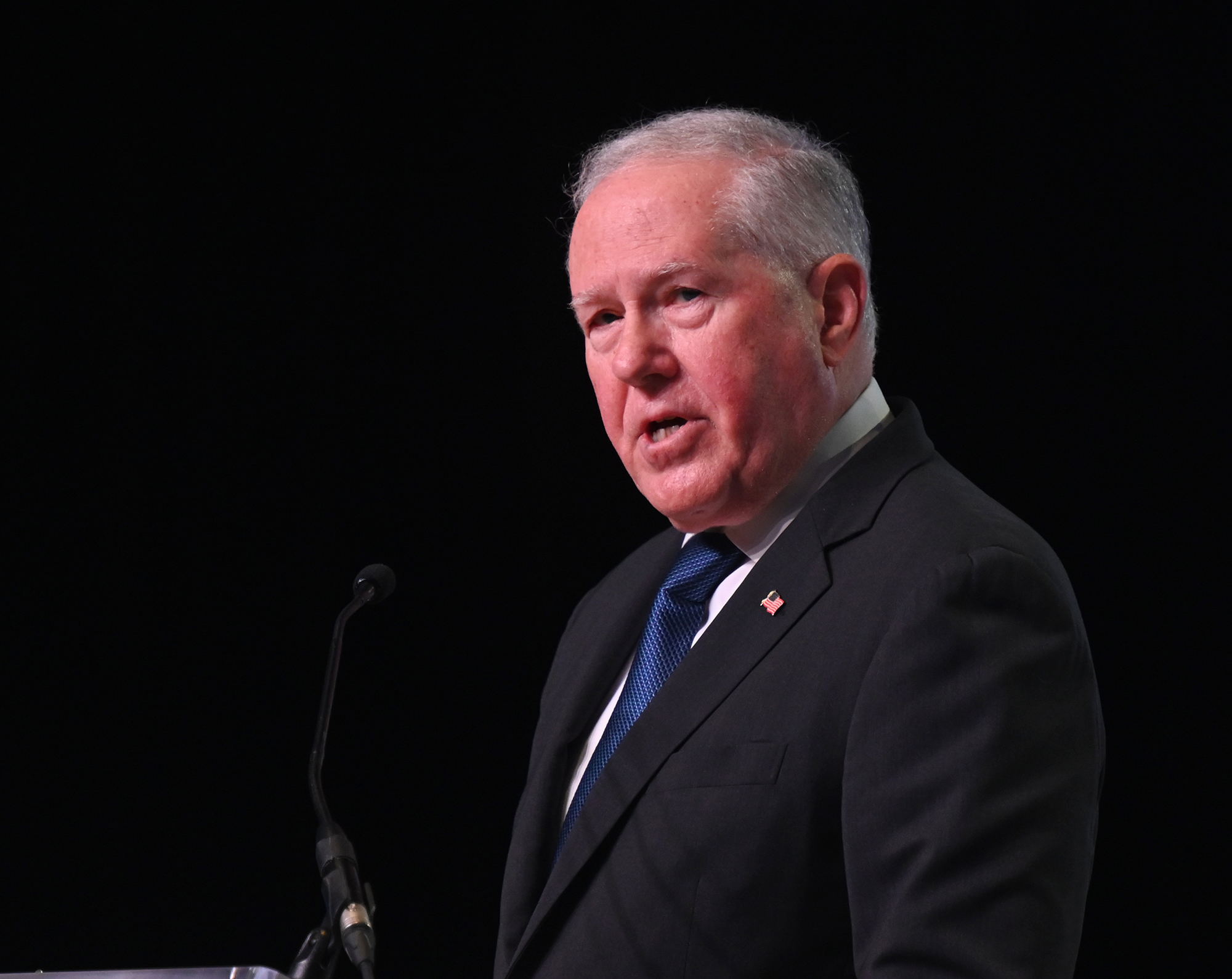NATIONAL HARBOR, Md. — Air Force Secretary Frank Kendall said his department is comfortable working with SpaceX despite recent reports about Elon Musk restricting the use of the company’s Starlink satellite services in Ukraine.
During a news conference Sept. 11 at the Air Space & Cyber conference, Kendall said he could not comment on reports — from news media and from Musk’s biographer Walter Isaacson — that SpaceX’s boss thwarted Ukrainian forces by shutting off Starlink’s satellite network over Crimea — a territory occupied by Russia that Ukraine was fighting to reclaim.
Kendall said he is not familiar with the terms of SpaceX’s agreement with Ukraine. But he said any company that signs a contract with DoD, including one run by a powerful billionaire, would be expected to comply with the terms of that contract.
The U.S. Air Force and other DoD organizations have acquired Starlink internet services under various contracts and have not experienced problems, Kendall noted. After Russia invaded Ukraine in February 2022, SpaceX provided Starlink services at its own expense and through an agreement with the U.S. Agency for International Development (USAID).
Most recently, DoD has signed agreements with SpaceX and other satellite communications services providers to support Ukraine. Kendall said he has not seen those contracts but would expect them to be clear on what’s expected from providers.
“The Department of Defense relies on enforceable and executable contracts,” said Kendall. “And whoever owns the company has to follow the contract.”
Reliable launch provider
While the Air Force is quite comfortable relying on SpaceX for launch services, said Kendall, “Starlink is a relatively new” product and the government is still learning about its capabilities.
Being dependent on large and powerful companies is not unusual for DoD, Kendall noted. “We’re highly dependent on other companies like Lockheed Martin.”
As a launch provider, SpaceX has been a “reliable competitor,” he said. “They’ve brought prices down … and their launches have been pretty reliable so far.”
Today, only United Launch Alliance competes with SpaceX for national security launches. Kendall said he hopes to see other competitors like Blue Origin enter the market. He said Space Force procurement executive Frank Calvelli is working with Congress to finalize the details of the next national security space launch procurement, known as NSSL Phase 3.
“We’re gonna have robust competition and pretty reliable capabilities,” said Kendall. “I’m not really concerned about that. But then again, business relationships are about executable, enforceable contracts. And I think we’re pretty good at writing contracts and enforcing our contracts.”
